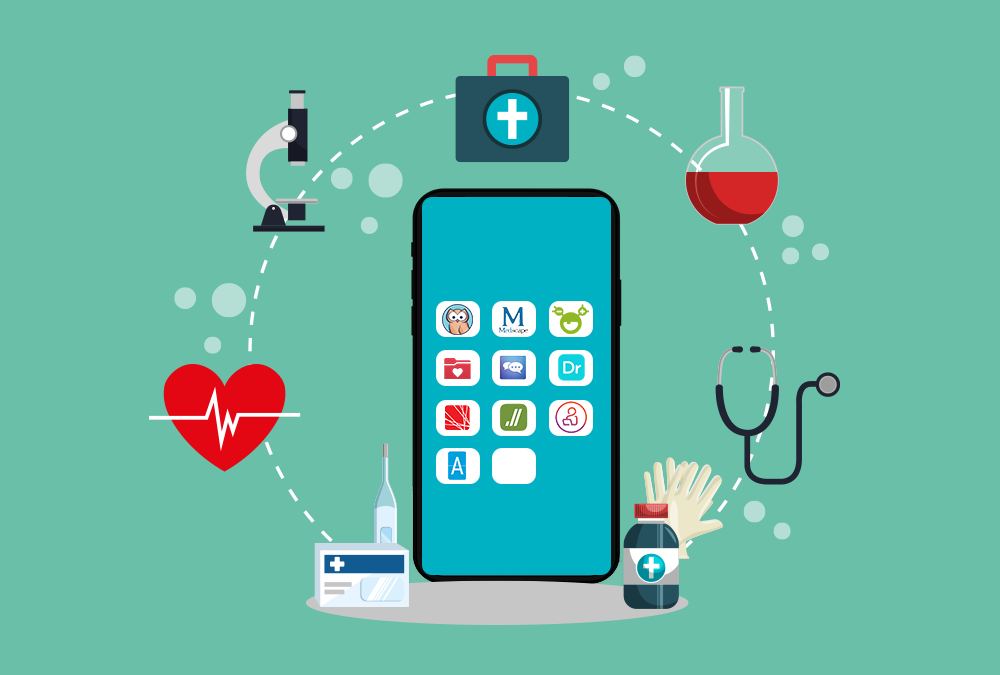Digital health apps have emerged as groundbreaking tools in the realm of healthcare technology, fostering a new wave of personalized patient care. These innovative applications harness the power of artificial intelligence in healthcare to provide tailored solutions for users, especially those managing chronic conditions like cancer. With a focus on user engagement, patient support apps utilize reinforcement learning algorithms to adapt to individual needs, ensuring that each interaction is as beneficial as possible. From medication reminders to health tracking, digital health apps are redefining the patient experience and improving adherence to treatment protocols. As we explore this dynamic intersection of technology and wellness, it becomes clear that these apps not only support patients but also pave the way for the future of proactive healthcare.
Health management applications, often referred to as digital wellness programs or mobile health solutions, are revolutionizing the way individuals engage with their well-being. These tools, embedded with advanced algorithms, aim to create more effective healthcare experiences by delivering customized support to users in real time. As the demand for personalized healthcare solutions rises, it’s no surprise that cancer support apps are gaining traction, helping patients navigate their treatment journeys with ease. By employing technologies such as artificial intelligence and adaptive learning strategies, developers are crafting patient-centric platforms that respond uniquely to each user’s requirements. This adaptation not only boosts adherence rates but also enhances the overall quality of the healthcare experience.
Revolutionizing Patient Support with Digital Health Apps
Digital health apps are transforming the healthcare landscape, offering innovative solutions tailored to individual patient needs. By utilizing reinforcement learning algorithms, these applications can adapt and evolve with the user, providing personalized support for various health conditions, particularly for cancer patients undergoing treatment. The focus is not merely on data tracking; these apps actively engage users in their health journey, ensuring they receive timely reminders and motivational prompts that resonate with their current circumstances.
Such advancements signify a shift from conventional healthcare models to a more integrative approach, where technology plays a crucial role in patient support. For instance, apps developed for cancer patients incorporate features that allow caregivers to be involved actively, bridging the gap between patient and support systems. The apps recognized that up to 73 percent of family caregivers hold primary responsibility for managing medications, highlighting the importance of collaborative health management for better outcomes.
Frequently Asked Questions
How can digital health apps improve medication adherence for cancer patients?
Digital health apps, particularly those designed for cancer patients, utilize reinforcement learning algorithms to personalize interventions. By delivering tailored reminders and motivational prompts based on real-time data, these apps enhance medication adherence, which is crucial for improving patient outcomes during recovery.
What role does artificial intelligence play in the development of healthcare technology for cancer patients?
Artificial intelligence is pivotal in healthcare technology, especially for developing cancer patient apps. It allows for real-time personalization through advanced algorithms that adapt to each patient’s unique circumstances, enabling better management of treatment regimens and improved support interactions.
What features do patient support apps for cancer patients typically offer?
Patient support apps for cancer patients often include features like medication reminders, symptom tracking, motivational prompts, and social support tools. These functionalities help enhance patient engagement and compliance with treatment protocols, ultimately aiding in recovery.
How do reinforcement learning algorithms benefit digital health apps?
Reinforcement learning algorithms enhance digital health apps by continually learning from user interactions. This allows the apps to adjust their suggestions and reminders based on what has been most effective for the user, ensuring timely and relevant support for managing health behaviors.
Can digital health apps help with behavioral issues beyond cancer treatment?
Yes, digital health apps can address a variety of behavioral issues. For instance, applications like MiWaves utilize algorithms to help young adults reduce cannabis use by adapting to their individual needs over time. This reflects the broader potential of digital health solutions in promoting positive behavior change across various contexts.
Why are one-size-fits-all interventions less effective in healthcare technology?
One-size-fits-all interventions tend to overlook individual patient variations, which can lead to disengagement and non-compliance. Digital health apps that leverage adaptive algorithms provide customized interventions that are more relevant and effective in meeting the diverse needs of patients.
What advancements in digital health apps are being explored for young adult cancer patients?
Current advancements include developing apps that utilize just-in-time adaptive interventions tailored for young adult cancer patients. These apps focus on optimizing medication management through learned interactions and personalized support, improving both adherence and emotional well-being during recovery.
How do advancements in sensing technologies enhance digital health apps?
Advancements in sensing technologies improve digital health apps by enabling real-time data collection and feedback. This allows apps to monitor user behaviors continuously and provide personalized interventions that adjust based on the user’s changing health needs, thus enhancing engagement and effectiveness.
| Category | Key Points |
|---|---|
| Target Group | Cancer patients undergoing stem cell transplantation, cannabis users, and others. |
| Innovation | Use of reinforcement learning algorithms for personalized healthcare support. |
| Problem Addressed | Non-adherence to medication regimens and health protocols. |
| Technological Approach | Algorithms learn from user interactions to provide timely support and reminders. |
| Project Example | ADAPTS HCT: an app for supporting adolescent and young adults post-stem cell transplant. |
| Goals | Improve patient-caregiver relationships and medication management through adaptive support. |
| Other Projects | MiWaves for cannabis use reduction, Oralytics for tooth-brushing adherence. |
Summary
Digital health apps are revolutionizing how patients manage their health, particularly for those facing complex medical challenges like cancer recovery. By leveraging advanced algorithms, these apps provide personalized, real-time support that adapts to individual needs and circumstances. This innovative approach not only enhances medication adherence but also fosters better relationships between patients and caregivers, ultimately leading to improved health outcomes.
